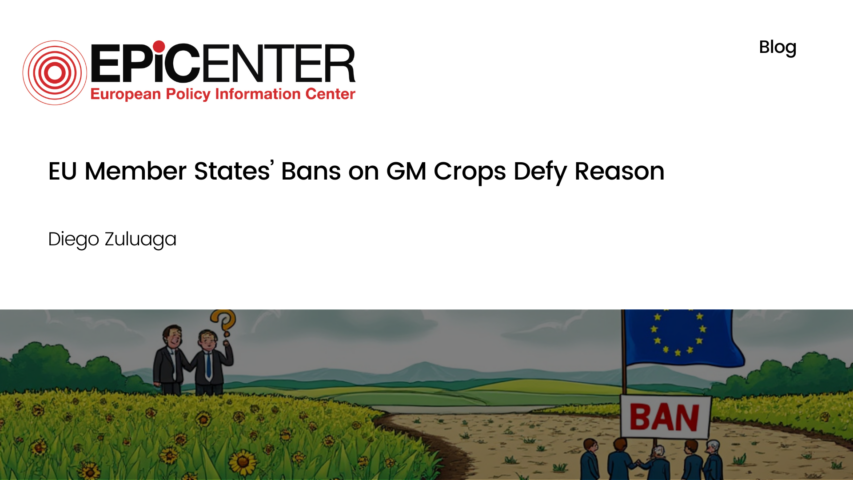EU Member States’ Bans on GM Crops Defy Reason

EU Member States’ Bans on GM Crops Defy Reason
Diego Zuluaga // 26.10.2015
On Sunday, the New York Times ran a powerful op-ed (“With GMO policies, Europe turns against science,” Sunday 25 Oct 2015) questioning the stance many EU countries have taken on the cultivation of genetically modified crops. The author, Mark Lynas from Cornell University in New York, condemns European Commission President Juncker’s decision not to re-appoint a chief scientific advisor, under pressure from Greenpeace and other anti-GMO organisations. Below are two of the op-ed’s most engaging passages:
“These prohibitions expose the worrying reality of how far Europe has gone in setting itself against modern science. True, the bans do not apply directly to scientific research, and a few countries — led by England — have declared themselves open to cultivation of genetically modified organisms, or G.M.O.s. But the chilling effect on biotech science in Europe will be dramatic: Why would anyone spend years developing genetically modified crops in the knowledge that they will most likely be outlawed by government fiat?
“[…] This decision of a majority of European countries to apparently ignore their own experts may undermine any claim to the moral high ground at the coming Paris talks on climate change. The worldwide scientific consensus on the safety of genetic engineering is as solid as that which underpins human-caused global warming. Yet this inconvenient truth on G.M.O.s — that they’re as safe as conventionally cultivated food — is ignored when ideological interests are threatened.” [Emphasis mine.]
Indeed, it is hard to overstate how irrational and unscientific the debate on GM foods has become in many European countries. It would be bad enough if the only consequence of such misguided policies were more expensive food for European households, and less productive (and more subsidy-dependent) agriculture. Yet, as Lynas point out, many African countries follow the EU’s intellectual leadership on this front. It means that our refusal to embrace the scientific consensus on GMOs is fuelling prejudice in countries where they could radically improve the income security and well-being of poor farmers, in the process making better nutrition available to the world’s most vulnerable.
Those who care about poverty reduction and rising living standards cannot hide behind bogus claims about the safety of GM crops. The blanket bans enforced by many EU Member States are just indefensible.
EPICENTER publications and contributions from our member think tanks are designed to promote the discussion of economic issues and the role of markets in solving economic and social problems. As with all EPICENTER publications, the views expressed here are those of the author and not EPICENTER or its member think tanks (which have no corporate view).



